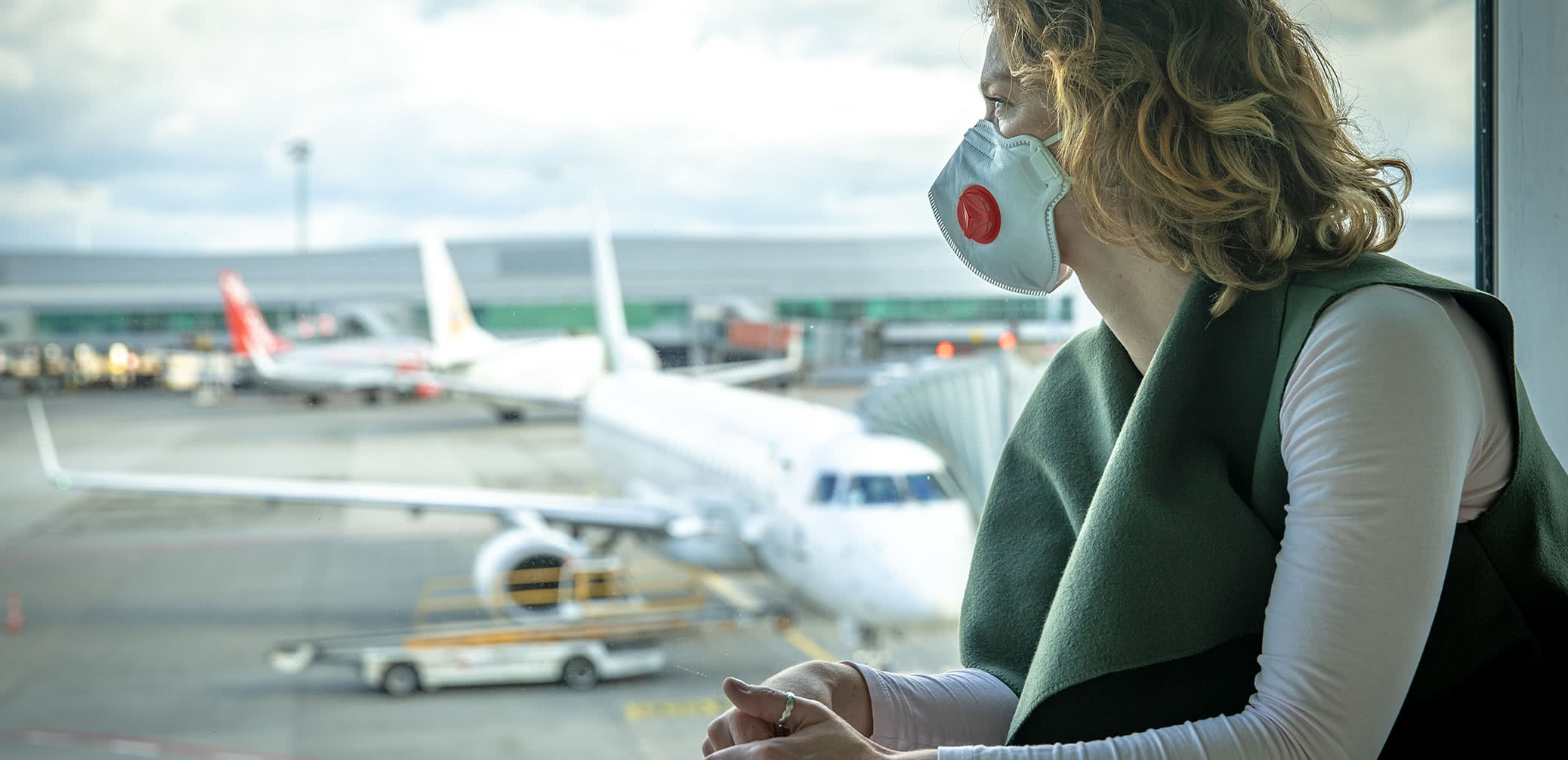A novel coronavirus which was first detected late December 2019 in the city of Wuhan in the Hubei Province in China, has been shaking the entire world as it continues to spread across continents. Global Travel Plus, a leading provider of global emergency assistance services, has compiled the latest updates regarding the virus and explains how it affects travel.
1. What is a coronavirus?
Coronaviruses (CoV) are a large family of viruses found in both animals and humans. Some infect people and are known to cause illness ranging from the common cold to more severe diseases such as the Middle East Respiratory Syndrome (MERS), the Severe Acute Respiratory Syndrome (SARS), and the ongoing novel coronavirus referred to as COVID-19.
This novel coronavirus is a new strain of coronavirus that had not been previously identified in humans before the first outbreak was reported in Wuhan, China in December 2019.
Scientists in China announced on March 4th to have identified two separate strains of COVID-19: a more aggressive type and a lesser one. The more aggressive strain was found in early cases from Wuhan, China, where the coronavirus originated from, and researchers think it may have evolved from the less aggressive type.
2. How is the virus transmitted?
Much remains unknown about COVID-19. Current knowledge is largely based on what is known about similar coronaviruses and primary analysis of confirmed cases. The virus is thought to spread mainly from person-to-person, between people who are in close contact with one another (within about 6 feet / 2 meters).
The spread is thought to occur mainly via respiratory droplets produced when an infected person coughs or sneezes, similar to how influenza and other respiratory pathogens spread. These droplets can land in or near the mouths or noses of people who are nearby or possibly be inhaled into the lungs.
People are thought to be most contagious when they are most symptomatic (the sickest). Some spread might be possible before people show symptoms; there have been reports of this occurring with this new coronavirus, but this is not thought to be the main way the virus spreads.
It may be possible that a person can get COVID-19 by touching a surface or object that has the virus on it and then touching their own mouth, nose, or possibly their eyes, but this is not thought to be the main way the virus spreads.
While most cases at the beginning of the crisis had direct links with international travel, new cases now appear to have no such links. According to scientists, this suggests the virus that causes COVID-19 seems to be spreading easily and sustainably across the community.
3. Who should be concerned about COVID-19?
It is important to note that most cases of COVID-19 remain mild and are not life-threatening. However, people over age 60, and particularly those with pre-existing health conditions, appear to be most vulnerable to the virus. These pre-existing conditions include Respiratory diseases, Cardiopulmonary diseases, Weakened immune system and immunodeficiency disorders, Chronic diseases such as asthma, diabetes, or heart disease.
In addition, the more exposure people have with the virus the more at-risk they are of becoming infected. Therefore, healthcare workers, people who have traveled, and those who are currently still in areas with confirmed outbreaks should be extremely cognizant of the symptoms, adjust their daily routine accordingly and observe quarantine measures as recommended by their home or host country’s authorities, as applicable.
4. What Should I Do if I Think I Have Been Exposed to or Infected with COVID-19?
If you think you have been exposed or develop mild symptoms you should alert your healthcare provider immediately and share your recent travel or close contact history. Isolate yourself from others at home and use a separate bathroom if available. Put on a medical mask and practice good sneeze/cough and hand hygiene. If you are working and have been to your workplace in the last 14 days, alert your employer.
If you have serious symptoms such as difficulty breathing, call the local emergency dispatch number for immediate medical attention and go to the nearest emergency room.
5. Can I still travel?
It is currently recommended to avoid all non-essential travel, either domestic or international. Most governments around the globe have issued a travel ban and/or high-level advisory, asking their residents not to travel and to shelter in place until the outbreak is under control. The Centers for Disease Control & Prevention (CDC) provides recommendations on postponing or canceling travel. These are called travel notices and are based on an assessment of the potential health risks involved with traveling to a certain area. A list of destinations with travel notices is available at: CDC.gov.
6. What should travelers expect?
This novel coronavirus has impacted international travels immensely, particularly the air travel industry. In the wake of the outbreak, most airlines worldwide have reduced or postponed service to at-risk destinations including China, Hong Kong, South Korea, Iran, and most of Europe.
The World Health Organization has requested governments to implement strict measures to limit the spread of the virus in their countries. Some of the most common measures include strict health checks at airports and closing all non-essential public places including shopping malls, museums, and many retail stores. Travelers should not be alarmed by airlines and other employees wearing protective coveralls, masks, and checking temperatures.
Several countries have also applied a ban on large gatherings such as concerts, conferences, events, and have decided to close popular public spaces such as museums and theme parks. All Disney theme parks around the world are closed until further notice. Many professional and sporting events are also being canceled and/or postponed. These include Geneva’s Auto Show, Paris’ Tennis Open, San Francisco’s Game Developers Conference, the world’s largest luxury jewelry and watch event, Baselworld, Houston’s Energy Conference, and fashion weeks across the world. Some high-profile companies such as Google, Microsoft, and Facebook are also canceling their company’s conferences and gatherings. Finally, many employers around the world are postponing all business travels to protect their employees against the risk of contamination.
About Global Travel Plus
When you’re experiencing any kind of emergency while traveling 100 miles away from home or in another country, Global Travel Plus assists you with relieving the additional stress experienced. Services include medical consultations, referrals, and monitoring, emergency evacuation and repatriation, medical and non-medical escort, assistance with foreign hospital admission, and prescriptions. With Global Travel Plus on your side, you’ll enjoy real worry-free travel everywhere in the world in any situation. For more information, visit www.globaltravelplus.com.
Copyright Luxury Travel Diary 2014 - 2024. Duplication outside of luxurytraveldiary.com is forbidden.
Note: Benefits & upgrades subject to availability. Benefits offered correct at the time of writing. Terms & conditions apply. Enquire for more information. Posts may be sponsored by the proprietor or brand being appraised. All opinions remain our own & are in no way influenced.















